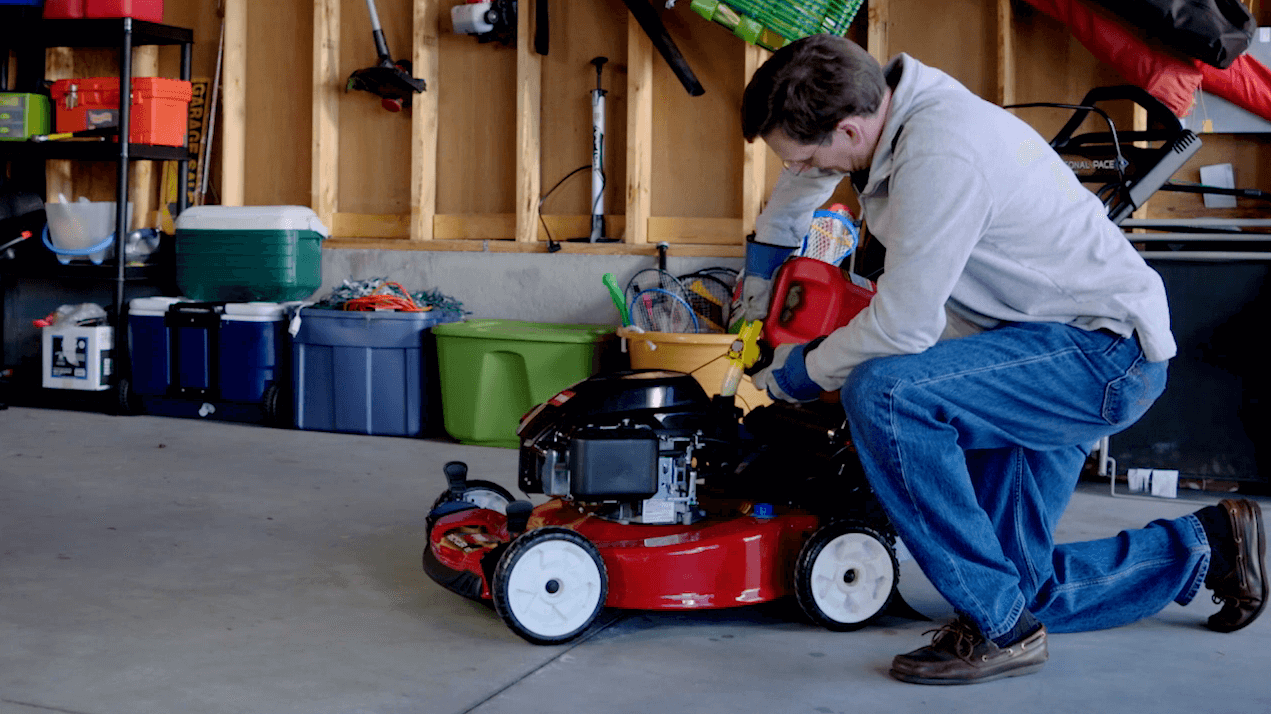
If you’re wondering if you can use regular gas in a lawnmower, or what gas to use in lawn mowers in general, you’re not alone. As ethanol gasoline blends are becoming more prevalent at the pump, there is more ambiguity than ever before.
In fact, the EPA recently raised the allowable ethanol limit to 15 percent for some motor vehicles. This creates a somewhat awkward position for millions of lawn mower owners throughout the country as most lawnmowers and gas-powered products aren’t designed to run on fuel blends containing more than 10 percent ethanol. So, what are the best practices to use when gassing up your lawn mower? Here are some helpful tips:
#1 Minimize the Ethanol
The first tip is simple: Try to find gas with the least amount of ethanol possible. The amount of ethanol often varies from station to station, but make sure you never exceed 10%. This will help to cut down on the amount of moisture that gets absorbed by the ethanol, which could ultimately separate from the fuel and cause rust issues in your tank or carburetor.
#2 Keep the Fuel Fresh
Another helpful tip is to limit the amount of time you store your gas. It’s best to only buy enough for 30 days or less, and add a fuel stabilizer the first day you get it. This will help keep your gas from decaying or going stale. Toro offers a premium fuel treatment that works to stabilize fuel, available through a dealer or online.
#3 Get the Right Gas
Don’t cheap out on your gas. Buy only unleaded gas with a minimum octane rating of 87.
#4 Empty the Fuel Tank
Toro recommends that you run your mower until the gas is completely gone after your last mow of the season. This will work to empty out your tank before you store it for the season.
There are several reasons why this is a good idea. Fuel, especially when it contains ethanol, absorbs water from the air. Unfortunately, this water will always find its way into the fuel, since both the gas tank and carburetor are vented, causing corrosion in the fuel system.
On top of that, fuel naturally deteriorates over time. In this process, the most volatile compounds start to evaporate first, making it hard to start the engine once they’re gone. When enough of the fuel evaporates, there are often gummy deposits left behind, which eventually harden. These hard deposits can plug up the fuel system, causing a slew of problems.
That’s why it’s best to avoid these problems entirely, emptying the tank before storage so the fuel can’t degrade. For other handy fuel tips, go to Toro.com/fuelfacts.



